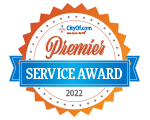Regaining Financial Stability in Addiction Recovery
Recovering from addiction is a remarkable achievement, but it often brings financial challenges. Restoring financial stability is crucial for a brighter future. This article, shared with you below by Golden Eagle Tax & Financial Services, offers guidance to help you achieve financial stability during your recovery.
Taking Control of Your Finances
The first step towards financial freedom is understanding where your money goes. Create a budget that outlines your income and expenses. Once you have a comprehensive budget, it becomes easier to identify areas where you can cut costs and save. Revisit this budget frequently to ensure you’re staying on track, and don't hesitate to adjust as circumstances change.
Pay Close Attention to Your Credit Score
Your credit score can have a significant impact on your financial stability. Begin by requesting a credit report to assess your financial history. Once you know your score, work on improving it by paying off debt and making consistent, on-time payments. A better credit score opens the door to improved financial opportunities, such as lower interest rates on loans.
Looking for a New Job? Start with a Resume
Securing stable employment is a cornerstone of financial recovery, and it often begins with a well-crafted resume. By utilizing
this free app, you can take advantage of online templates that help you design a resume that is both visually appealing and professionally formatted. Importantly, each job application should be met with a tailored resume that emphasizes your skills and experiences relevant to the role you're aspiring to fill.
Start Building Your Emergency Fund
An emergency fund is
an essential safety net that can help you through unexpected financial setbacks. Start by saving a small percentage of your income, aiming to accumulate enough to cover at least three months’ worth of living expenses. Keep this fund in a separate account to avoid the temptation of using it for non-emergencies.
Conquer Debt and Regain Financial Freedom
Debt can be a debilitating burden, especially when you're in recovery. Create a debt repayment plan that works for you. Prioritize high-interest debts first and consider consolidating debts to make them more manageable. You should also close high-interest credit card accounts after you’ve paid off the balance due. Using a card with an inflated interest rate puts you in a position of having to pay excessive interest payments if you aren’t able to pay your balance in full right away, so it’s better to use low-interest credit cards or cash (more on that below) instead.
A structured, consistent approach to debt repayment can set you on the right path to complete financial independence. Make sure to account for your essential living expenses first, then allocate a portion of your remaining income towards debt repayment. Communicate with your creditors to negotiate better terms or lower interest rates if possible; this can make your repayment plan more achievable. Automating your payments can ensure consistency and eliminate the possibility of missed payments, which could set back your journey towards financial independence.
Pay in Cash When You Can
While it’s not always practical to pay your expenses in cash, using cash for certain purchases, like gas and groceries, can be extremely beneficial. Gas stations charge less per gallon to cash-paying patrons, which really adds up, especially for folks who drive large vehicles. Plus, some gas stations charge a flat fee for using a credit card, so you could save a few bucks by paying with dollar bills over your credit card — which often translates to a free gallon of gas!
When it comes to your groceries, you’ll do yourself a favor by setting a shopping budget that’s equal to the amount of cash you’re carrying. This way, you have to be mindful of every item you’re putting in your cart, and you won’t be tempted to add impulse items (like that magazine with the tantalizing headline at the checkout stand). You can make this task simpler by creating a grocery list ahead of time so you’re even more focused on buying only what you need and not overspending.
Downsize Your Home for Financial Health
If housing expenses are weighing heavily on your budget,
downsizing your living space can be a transformative step toward achieving financial stability. This could mean relocating to a more modest apartment or even selling your current home to move into a more budget-friendly option. By reducing your monthly housing costs, you create room for savings, investments, or reallocating funds to other essential areas of your life.
Become a Master of Financial Discipline
Consistency is key to
maintaining your financial stability. Develop habits that support your financial goals, like consistently tracking expenses or setting aside money for savings. Resist impulse buying and other risky spending habits that can derail your progress. Keeping focused on your financial goals will help you navigate challenges and stay on the path to financial stability.
Your journey to recovery from addiction is marked by resilience and determination. Achieving financial stability is a significant milestone in that journey. By following these practical steps, you can seize control of your finances, create a brighter future, and reap the rewards of your recovery journey. Remember, with resolve and sound financial strategies, a stable and prosperous life is within reach.



